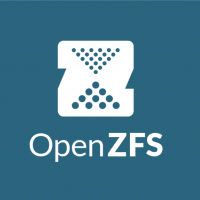Tag: proxmox
-
Proxmox KVM virtual machine: Cannot delete due to missing storage
Today we encountered a situation where a Proxmox system’s KVM virtual machine refused to delete after the storage volume that it’s virtual HDD resided on was lost; trying to delete the KVM from the web GUI resulted in the following error: TASK ERROR: storage ‘proxmoxHDD’ does not exists Attempting to delete it from…
-

ZFS on Linux: Zpool import failed
We upgraded a Proxmox box today which was running ZFS and ran into this rather scary looking error: zpool: ../../lib/libzfs/libzfs_import.c:356: Assertion `nvlist_lookup_uint64(zhp->zpool_config, ZPOOL_CONFIG_POOL_GUID, &theguid) == 0′ failed. Zpools would not import and zpool status did not work. Resolved (so far, anyhow, still testing) by running: apt-get install zfsutils Another good reason…
-
How to kill a KVM virtual machine in Promox via the command line or terminal
Sometimes a Proxmox KVM VM will stop responding to the GUI’s attempts to shut it down; fortunately it’s easy to shut it down from the command line. Make note of the VM ID (next to the name of the VM in the left pane of the Proxmox GUI), log into the server via SSH…
-
Proxmox 3.2: Finding the container CTID from the command line
If you are in a terminal and want to find the container IDs (CTID) quickly without opening up a browser, run the following: vzlist It should return a list of the container IDs, the VM state, their IP addresses and hostnames like so: CTID NPROC STATUS IP_ADDR HOSTNAME 100 25…
-
Proxmox 3.2: Enabling NFS on a container (CT) VM
If you’re trying to figure out why you are getting NFS errors despite having NFS set up properly on the host machine and client VM, this may be the answer. With the VM powered off, run at the Proxmox terminal: vzctl set [VM ID] –features “nfs:on” –save The next time the VM…